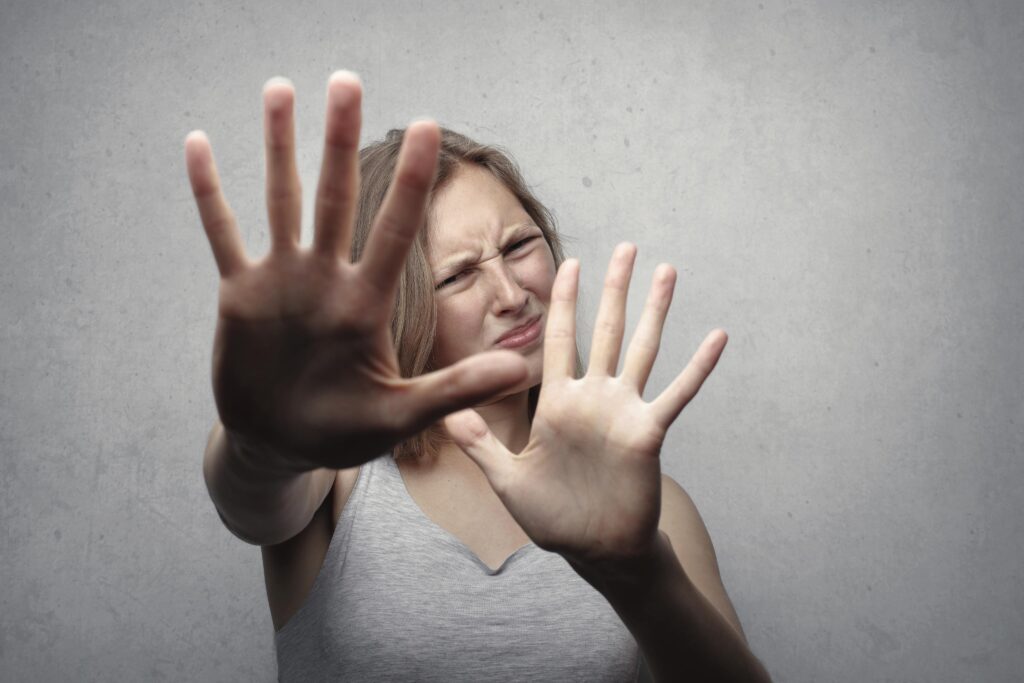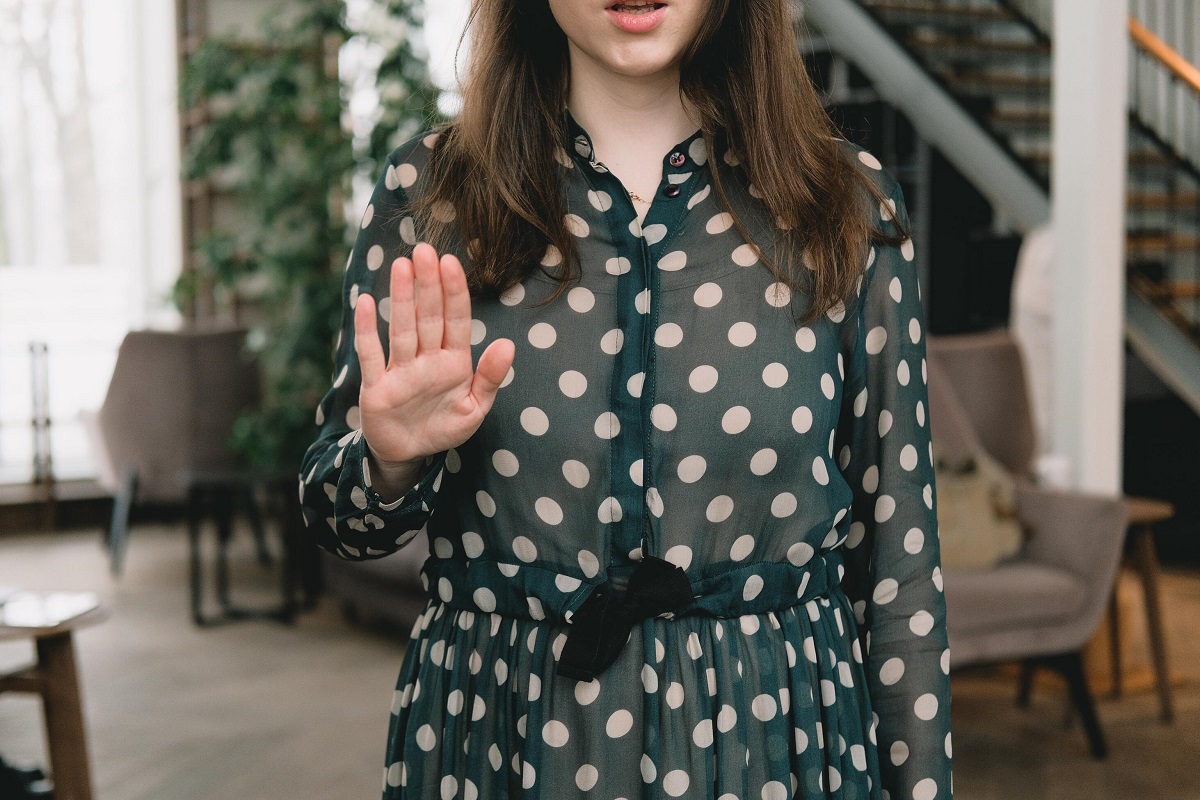How to Stop Reacting Quickly? The reaction can be explained as an intuitive, often automatic, response to a stimulus. It is an unlearned behavior that has been acquired through experience. The reaction time usually refers to the time it takes for someone to respond to a particular situation. The faster someone can react, the better they can defend themselves or take action.
While reaction time is important in some situations, there are times when it can be detrimental. For example, if you are driving and suddenly see a car speeding toward you, your reaction time had better be quick if you want to avoid a collision. However, in other situations, such as an argument with your partner, having a quick reaction can often make things worse.
Sometimes our reactions are based on our emotions. We might get angry and say something we regret or cry when upset. Other times our reactions are based on our habits. We might automatically reach for the cigarettes when we’re feeling stressed or automatically roll our eyes when someone starts talking to us.
Take a look at this typical story:
John is driving to work and gets stuck in traffic. He’s running late and starts to get frustrated. The guy in the car next to him beeps his horn, and John starts to honk back. Before he knows it, he’s engaged in a full-blown argument with the other driver.
In this situation, John’s reaction was based on his emotions (frustration and anger) and his habit (honking his horn). If he had taken a few moments to calm down, he might have been able to handle the situation differently.
Sometimes, our reactions are based on our assumptions. We might see someone we don’t know walking down the street and automatically think they’re up to no good. Or we might hear a noise in the middle of the night and assume that there’s someone in the house.
Let’s quickly look at the 15 adverse effects of quick reaction

1) It can lead to regrettable words or deeds:
When someone reacts quickly, it can often lead to them saying or doing something they later regret. Our reactions are often based on our emotions, which can sometimes be irrational. For example, if you get angry at your partner for something minor, you might say something that hurts their feelings.
2) It can make the situation worse:
If you react quickly in an argument, likely, the situation will only become more tense and heated. This is because both parties are reacting based on their emotions instead of taking the time to calmly assess the situation and come up with a plan of action.
3) It can damage relationships:
Quick reactions can often lead to conflict and tension in relationships. This is because our reactions are often based on our assumptions, which can sometimes be wrong. For example, if you get into an argument with your partner, the argument will likely damage the relationship.
4) It can lead to stress and anxiety:
When we react quickly, it can often lead to us feeling stressed and anxious. This is because our reaction time is usually based on our fear or flight response. For example, if you’re driving and someone cuts you off, you might feel stressed out and anxious.
5) It can cause problems at work:
If you have a quick reaction time at work, it can often lead to problems. This is because your reactions are often based on your habits, which can sometimes lead to you making mistakes. For example, if you’re working on a project and you suddenly get a phone call, you might not be able to finish the project if you answer the phone.
6) It can lead to accidents:
If you have a quick reaction time, it can often lead to accidents. This is because our reactions are usually based on our instincts, which can sometimes lead us to make poor decisions. For example, if you’re driving and someone cuts you off, you might start to brake quickly without thinking about the consequences.
7) It can cause health problems:
Quick reactions can often lead to feeling stressed and anxious, which can harm our health. This is because our stress and anxiety can lead to us developing chronic health problems, such as heart disease or diabetes.
8) It can damage relationships with friends and family:

Quick reactions can often lead to conflict and tension in relationships with friends and family. This is because our reactions are usually based on our assumptions, which can sometimes be wrong. For example, if you get into an argument with your parents, the argument will likely damage the relationship.
9) It can cause problems with social interactions:
Quick reactions can often lead to problems with social interactions. This is because our reactions are usually based on our habits, which can sometimes lead us to say or do the wrong thing. For example, if you’re at a party and someone asks you a question, you might not be able to think of an answer if you’re not prepared.
10) It can lead to depression:
Quick reactions can often lead to us feeling down and depressed. This is because our reactions are usually based on our negative thoughts, harming our mood. For example, if you constantly think that you’re a failure, you’ll likely start to feel depressed.
11) It can damage relationships with partners:
Quick reactions can often lead to conflict and tension in relationships with partners. This is because our reactions are usually based on our assumptions, which can sometimes be wrong. For example, if you get into an argument with your partner, the argument will likely damage the relationship.
12) It can lead to problems at school:
If you have a quick reaction time at school, it can often lead to problems. This is because your reactions are usually based on your habits, which can sometimes lead to you not doing well in school. For example, if you’re studying for a test and you suddenly get a phone call, you might not be able to finish the test if you answer the phone.
13) It can cause problems with social interactions:
Quick reactions can often lead to problems with social interactions. This is because our reactions are usually based on our habits, which can sometimes lead us to say or do the wrong thing. For example, if you’re at a party and someone asks you a question, you might not be able to think of an answer if you’re not prepared.
14) Quick reactions can make it difficult to think clearly:
If you have a quick reaction time, it can often lead to you not being able to think clearly. This is because your reactions are usually based on your habits, which can sometimes lead to you not being able to make good decisions. For example, if you’re in a meeting and someone asks you a question, you might not be able to think of an answer if you’re not prepared.
15) Quick reactions can often lead to us feeling stressed:
Quick reactions can often lead to us feeling stressed. This is because our reactions are usually based on our assumptions, which can sometimes be wrong. For example, if you get into an argument with your partner, the argument will likely stress you out.
16) Quick reactions can lead to us making mistakes:

If you have a quick reaction time, it can often lead to you making mistakes. This is because your reactions are usually based on your habits, which can sometimes lead to you not doing well in school or at work. For example, if you’re studying for a test and you suddenly get a phone call, you might not be able to finish the test if you answer the phone.
So how can we stop ourselves from reacting quickly?
There are a few things you can do to help you stop reacting quickly; we will be looking at the various effective ways to stop reacting quickly.
1. Take a deep breath: This is a great way to calm down quickly and stop yourself from reacting. Taking a few deep breaths will help you relax and focus on the situation at hand.
2. Count to 10: If you feel yourself getting angry or frustrated, take a moment to count to 10. This will give you some time to calm down and assess the situation.
3. Remove yourself from the situation: If possible, remove yourself from the situation that is causing you to react. This can be done by walking away, leaving the room, or simply closing your eyes and taking a few deep breaths.
4. Talk to someone about what’s going on: Talking to someone about what’s happening can be a great way to release some of the built-up emotions. It can also help you get some feedback and perspective on the situation.
5. Exercise: Exercise is a great way to release pent-up energy and stress. It can also help you calm down and focus on the present moment.
6. Eat healthily: Eating healthy foods helps your body function at its best. When you’re eating unhealthy foods, your body is working harder than it needs to, leading to stress and reactivity.
7. Get enough sleep: Getting enough sleep is essential for your overall health and well-being. When you’re tired, your body is more prone to stress and reactivity.
8. Take a break: If you feel like you’re getting overwhelmed or stressed, take a break. This could mean taking a few minutes to yourself, going for a walk, or taking a nap.
9. Avoid caffeine and alcohol: Caffeine and alcohol can contribute to stress and reactivity. Avoid drinking caffeine in the afternoon and evening, and avoid drinking alcohol if you’re feeling stressed or upset.
10. Practice meditation: Meditation is a great way to calm your mind and focus on the present moment. It can be helpful in situations where you feel like you’re about to react quickly.
11. Practice mindfulness: Mindfulness is similar to meditation but can be practiced anywhere and anytime. Mindfulness involves paying attention to the present moment without judgment. This can help you to stay calm and focused in difficult situations.
12. Write down your thoughts: When you’re feeling overwhelmed or stressed, writing down your thoughts can be a helpful way to process them. It can also help you to see the situation from a different perspective.
13. Talk to a therapist: If you’re having difficulty managing your reactions, talking to a therapist can be a great option. A therapist can help you understand the root of your reactions and provide tools for managing them.
14. Use relaxation techniques: Many different techniques can help you calm down quickly. These techniques include deep breathing, visualization, and progressive muscle relaxation.
15. Take a break from electronics: Taking a break from electronics can be a great way to calm down and focus on the present moment. Electronics can often be distractions and can contribute to stress and reactivity.
16. Practice yoga: Yoga is a great way to relax your body and mind. It can also help you focus on the present moment and manage difficult emotions.
17. Listen to calming music: Calming music can be a great way to relax your mind and body. It can also help you to focus on the present moment.
18. Spend time in nature: Spending time in nature can be highly relaxing and grounding. It can help you connect with the present moment and manage difficult emotions.
19. Talk to a friend: Talking to a friend can be a great way to release feelings of stress and anxiety. It can also help you to get some perspective on the situation.
20. Seek professional help: If you feel like struggling to manage your reactions, seeking professional help can be a great option. A therapist can help you understand the root of your reactions and provide tools for managing them.
In conclusion
How to Stop Reacting Quickly? There are many different ways to manage your reactivity. By using some of these tips, you can hopefully feel more in control of your reactions and less stressed in difficult situations.


